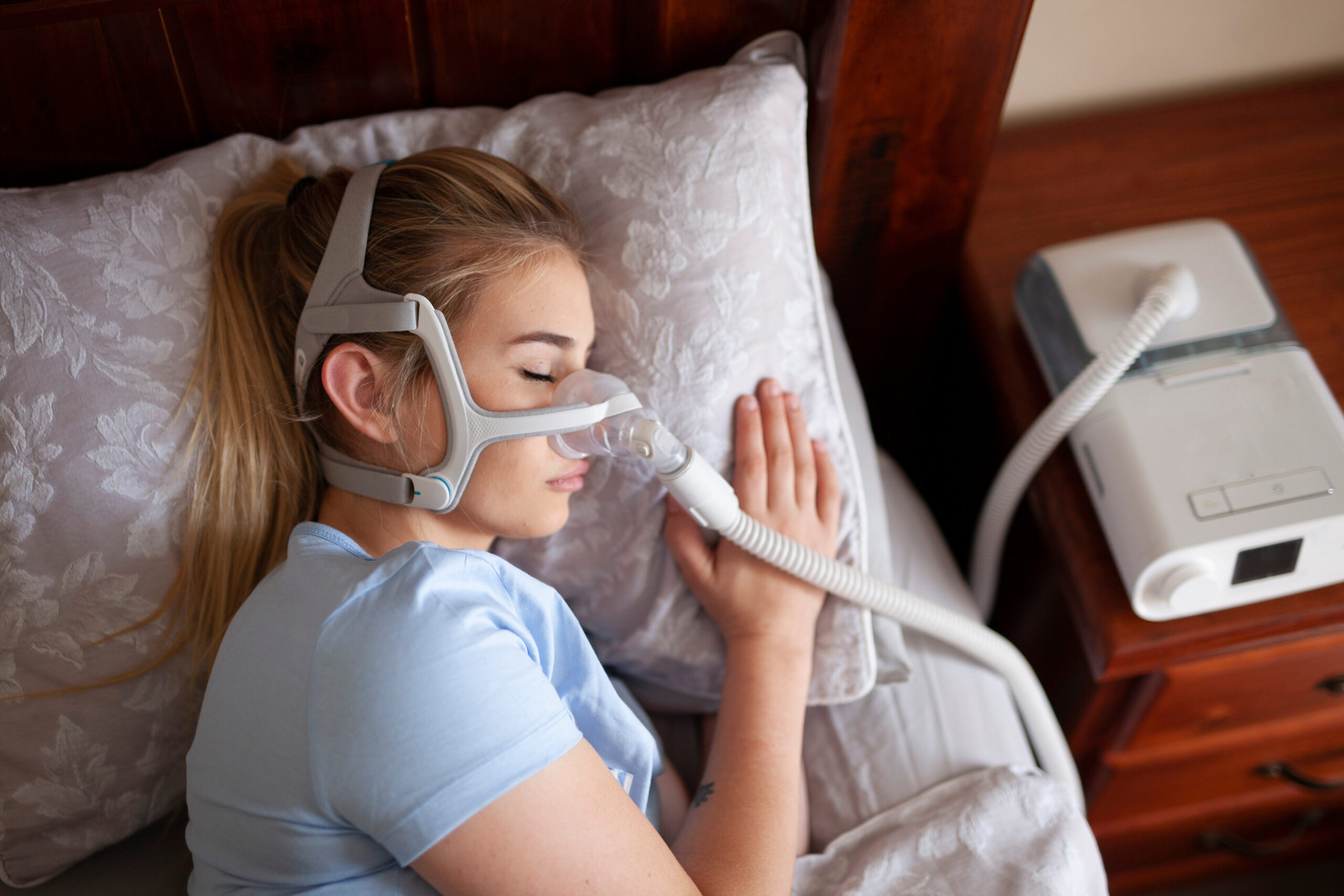Sleep apnea is a common sleep disorder that affects many people. It occurs when there are pauses in breathing during sleep, leading to disrupted sleep and other health problems. Recent research has shown that patients with sleep apnea are also at risk for developing atrial fibrillation. In this article we discuss the link between these two conditions and why it is essential for patients with sleep apnea to be screened for atrial fibrillation.
What Is Sleep Apnea?
Sleep apnea is a condition that causes pauses in breathing during sleep. These pauses can last for seconds or minutes, and they can occur many times throughout the night. Sleep apnea can disrupt your sleep and cause you to wake up feeling tired. It can also lead to other health problems, such as high blood pressure, heart disease, and stroke.

Sleep apnea is caused by a blockage of the airway, which can be due to several things, including obesity, large tonsils, or a small jaw. Treatment for sleep apnea typically involves using a Continuous Positive Airway Pressure (CPAP) machine, which helps to keep the airway open during sleep. Surgery may also be an option in some cases. If left untreated, sleep apnea can be a severe condition.
What Are the Risks Associated With Sleep Apnea?
There are several risks associated with sleep apnea:
Disrupt your sleep: Sleep apnea can disrupt your sleep and cause you to wake up feeling tired.
High blood pressure: Sleep apnea can lead to high blood pressure, a risk factor for heart disease and stroke.
Heart disease: Sleep apnea can also increase your risk of developing heart disease.
Stroke: Sleep apnea is a risk factor for stroke.
Atrial fibrillation: Recent research has shown that sleep apnea is also a risk factor for atrial fibrillation. Atrial fibrillation is an irregular heartbeat that can lead to serious health problems, including stroke.
How Is Atrial Fibrillation Related to Sleep Apnea?
Atrial fibrillation is a condition that causes an irregular and rapid heartbeat. It affects about 33% of patients with sleep apnea. The exact link between these two conditions is not clear, but it is thought that sleep apnea may contribute to atrial fibrillation by causing changes in the heart’s electrical activity.
Sleep apnea may also increase your risk of developing blood clots, leading to stroke. There are a few ways to manage atrial fibrillation, such as medication, lifestyle changes, and surgery. If you have sleep apnea, it is essential to be treated for it. Untreated sleep apnea can lead to serious health problems, such as high blood pressure, heart disease, and stroke.
How Can Patients With Sleep Apnea Reduce Their Risk of Developing Atrial Fibrillation?
There are several things that patients with sleep apnea can do to reduce their risk of developing atrial fibrillation:
Treat your sleep apnea: If you have sleep apnea, it is essential to be treated for it. This can help to reduce your risk of developing atrial fibrillation.
Manage your weight: Obesity is a risk factor for both sleep apnea and atrial fibrillation. Losing weight can help to reduce your risk of both conditions.
Eat a healthy diet: Eating a healthy diet can help to reduce your risk of developing atrial fibrillation.
Exercise regularly: Exercise can help to reduce your risk of developing atrial fibrillation.
Limit alcohol consumption: Drinking too much alcohol can increase your risk of atrial fibrillation.
Are There Any Treatments for Atrial Fibrillation Specific to Patients With Sleep Apnea?
Atrial fibrillation is a condition that affects the heart’s rhythm. It can cause the heart to beat too fast, too slowly, or irregularly. Sleep apnea is a condition that causes interrupted breathing during sleep. It can also lead to atrial fibrillation.
A few treatments for atrial fibrillation are specific to patients with sleep apnea: CPAP, weight loss, and surgery. CPAP is a treatment for sleep apnea that can also help to reduce your risk of developing atrial fibrillation. Losing weight can help to reduce your risk of both sleep apnea and atrial fibrillation. In some cases, surgery may be an option to treat sleep apnea. This can also help to reduce your risk of atrial fibrillation.
How Can Family Members Help Patients With Sleep Apnea Get the Treatment They Need?
Although sleep apnea is a severe medical condition, it is often undiagnosed or untreated. Many people are unaware of the symptoms or do not realize how painful the condition can be. Family members and caregivers can play a vital role in helping patients with sleep apnea get the treatment they need. One of the most important things they can do is be supportive and understanding.
Many people with sleep apnea feel embarrassment or shame about their condition, so it is essential to reassure them that they are not alone. In addition, family members and caregivers can provide practical help, such as assisting with doctor’s appointments and providing transportation to and from treatments. By working together, family members and caregivers can ensure that patients who suffer from sleep apnea are able to live with their condition.
Conclusion
Sleep apnea is a severe condition that can lead to atrial fibrillation. If you have sleep apnea, it is essential to get treatment. Your family members and caregivers can help you by providing support and encouragement. They can also help you by keeping your appointments and taking your medication as prescribed. Finally, they can help you by monitoring your symptoms and reporting any changes to your doctor.



